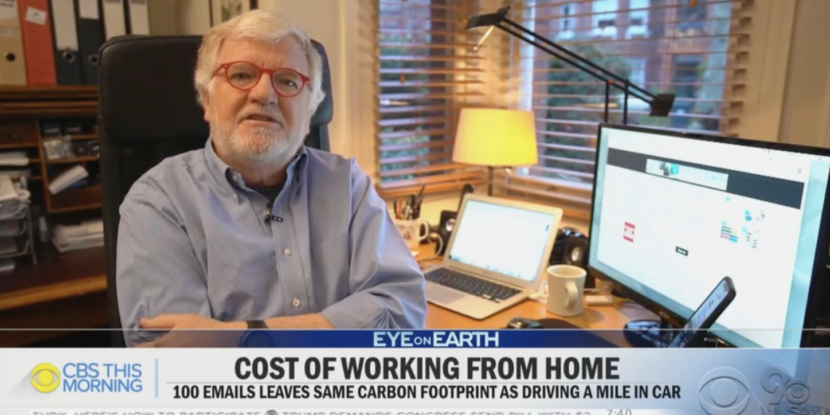A recent CBS This Morning segment insisted that too many emails – “little” messages such as “thank you” and “got it” – would contribute to global warming.
Speaking on Wednesday, correspondent Mark Phillips attempted to downplay the fact that COVID-19 would lead to a decrease in global carbon emissions. He focuses on how emails could offset the saved carbon emissions from less flying, driving, and commuting as a result of COVID-19 and lockdowns.
Phillips, however, emphasizes that humans ought to “hold the smugness.” “Working from home is not cost-free, and the more of us who do it, the more environmentally expensive it becomes,” he adds.
Phillips even slams “little texts” such as “thank you” and “got it”:
“Every e-mail and text, especially the unnecessary little ones — every “thank you” and “got it,” — every time we hit send or download or stream or Zoom, they all require power. Somewhere massive banks of computers are storing and processing that data, sucking up enormous amounts of electrical energy to do it. The cloud doesn’t so much have a silver lining as a carbon one.”
Attacking emails once again, he continues to cite a study about how “if everyone in Britain sent one less “thank you” e-mail a day, the carbon saving would be like taking about three and a half thousand cars off the road”:
“Think about it: Every e-mail we send not only requires electricity to write — as it travels across the internet and gets stored and transferred from one megaserver to another, gobbling up energy along the way. Then, if it gets read, it sucks up even more power. An e-mail may use just five percent of the power needed to deliver a paper letter, but we send and receive gazillions of them. Someone here has actually done the math and figured that if everyone in Britain sent one less “thank you” e-mail a day, the carbon saving would be like taking about three and a half thousand cars off the road. It’s just a rough calculation, but the principle is accurate.”


